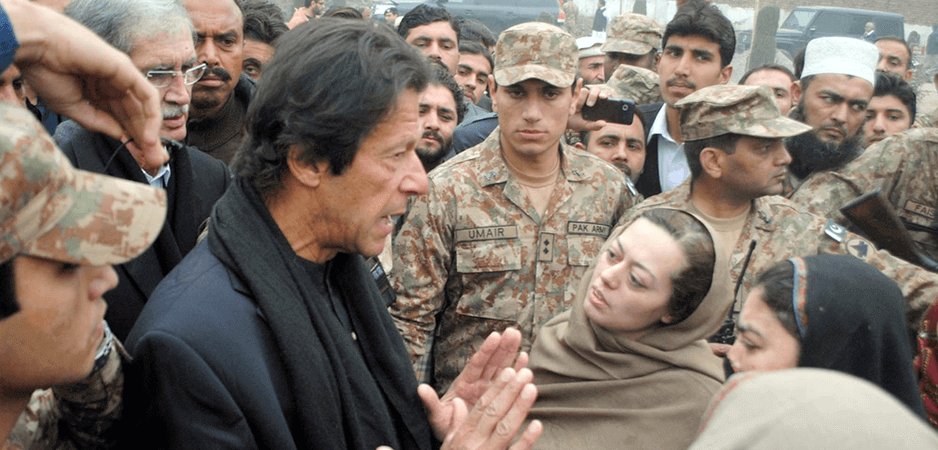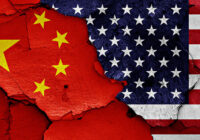Imran Khan, the incoming prime minister, is about to find out just how complicated the job can be.
Criticism over Pakistani efforts to combat money laundering and terrorism financing is likely to complicate incoming Prime Minister Imran Khan’s goal of tackling the country’s financial crisis. Addressing the comments by the Asia Pacific Group on Money Laundering (APG) is key to a possible Pakistani request for a $12 billion bailout from the International Monetary Fund (IMF). This is especially the case since the APG reports to the Financial Action Task Force (FATF), an international anti-money laundering and anti-terrorism watchdog, which earlier this year put Pakistan on a gray list with the prospect of blacklisting it.
Demands by the US that any IMF package exclude funding for paying off Chinese loans, coupled with the APG/FATF criticism, the Pakistani army’s quest to push militants into the mainstream of domestic politics, and Khan’s mixed statements on extremism could have a big impact. Khan may turn to China and Saudi Arabia for a rescue, a move that would likely not put Pakistan in the kind of straightjacket it needs to reform and restructure its troubled economy.
The APG criticism followed Pakistani efforts to demonstrate its sincerity by passing in February the Anti-Terrorism Ordinance of 2018, which gave groups and individuals designated by the UN as international terrorists the same status in Pakistan for the first time. But Pakistan has yet to implement the ordinance by, for example, acting against Hafez Saeed, a leader of the banned group Lashkar-e-Taiba and the alleged mastermind of the 2008 attacks in Mumbai. Despite having been designated a global terrorist by the United Nations Security Council and having a $10 million US Treasury bounty on his head, Saeed fielded candidates in last month’s election in Pakistan.
The APG, which just ended talks with Pakistani officials, has scheduled follow-up visits to Pakistan in the fall to monitor the country’s progress in addressing its concerns. These center on legal provisions governing nonprofit and charitable organizations, transparency in the country’s beneficial ownership regime, and the handling of reports on suspicious financial transactions.
Those concerns go to the heart of the effort by the Pakistani military and intelligence to mainstream militants, who garnered just under 10% of the vote in the election but have a far greater impact on Pakistani politics. The military and intelligence have, in the past, encouraged militants to form political organizations — with which mainstream political parties have been willing to cooperate — and establish charity operations that have had a substantial social impact.
Similarly, Khan, who earned the nickname “Taliban Khan,” will likely have to counter his past record of allowing government funds to go to militant madrassas, his advocacy for the opening of a Taliban Pakistan office and his defense of the Afghan Taliban. His Pakistan Tehreek-e-Insaf (PTI)-led government in Khyber Pakhtunkhwa gave, in February, $2.5 million to Darul Aloom Haqqania, a militant religious seminary.
Dubbed a “jihad university,” Darul Aloom Haqqania, headed by Sami ul-Haq, a hardline Islamist politician known as the father of the Taliban, counts among its alumni Mullah Omar, the deceased leader of the Taliban; Jalaluddin Haqqani, the head of the Haqqani Network; Asim Umar, leader of al-Qaeda in the Indian Subcontinent; and Mullah Akhtar Mansoor, Mullah Omar’s successor who was killed in a 2016 US drone strike.
Those may be policies that, at least initially, could be less of an obstacle for assistance from China and Saudi Arabia to replenish Pakistan’s foreign exchange reserves, which have plummeted over the past year to $10.4 billion. Pakistan’s currency, the rupee, has been devalued four times since December 2017 and lost almost a quarter of its value.
Chinese loans have so far kept Pakistan afloat with state-owned banks extending more than $5 billion in loans in the past year. PTI officials said this week that China has promised the incoming government further loans to keep Pakistan afloat and enable it to avoid reverting to the IMF. The IMF would demand transparency in the funding of projects related to the China-Pakistan Economic Corridor (CPEC), a crown jewel of Beijing’s Belt and Road initiative.
And that is where the rub is. Despite Chinese officials reportedly urging Pakistan to reduce its deficit, neither China nor Saudi Arabia — the latter has offered to lend Pakistan $4 billion — are likely to impose the kind of regime that would put the country on a sustainable financial path. Relying on China and Saudi Arabia would probably buy Pakistan time, but ultimately not enable it to avoid the consequences of blacklisting by the FATF. If Pakistan is blacklisted, it would be severely limited in accessing financial markets.
Moreover, relying on China and Saudi Arabia, two of Pakistan’s closest allies, could prove risky. Neither country shielded Islamabad from FATF gray listing in February. A Chinese official said at the time that Beijing had not stood up for Pakistan because it did not want to “lose face by supporting a move that’s doomed to fail.”
The views expressed in this article are the author’s own and do not necessarily reflect Fair Observer’s editorial policy.
Photo Credit: Asianet-Pakistan / Shutterstock.com
Support Fair Observer
We rely on your support for our independence, diversity and quality.
For more than 10 years, Fair Observer has been free, fair and independent. No billionaire owns us, no advertisers control us. We are a reader-supported nonprofit. Unlike many other publications, we keep our content free for readers regardless of where they live or whether they can afford to pay. We have no paywalls and no ads.
In the post-truth era of fake news, echo chambers and filter bubbles, we publish a plurality of perspectives from around the world. Anyone can publish with us, but everyone goes through a rigorous editorial process. So, you get fact-checked, well-reasoned content instead of noise.
We publish 2,500+ voices from 90+ countries. We also conduct education and training programs
on subjects ranging from digital media and journalism to writing and critical thinking. This
doesn’t come cheap. Servers, editors, trainers and web developers cost
money.
Please consider supporting us on a regular basis as a recurring donor or a
sustaining member.
Will you support FO’s journalism?
We rely on your support for our independence, diversity and quality.






